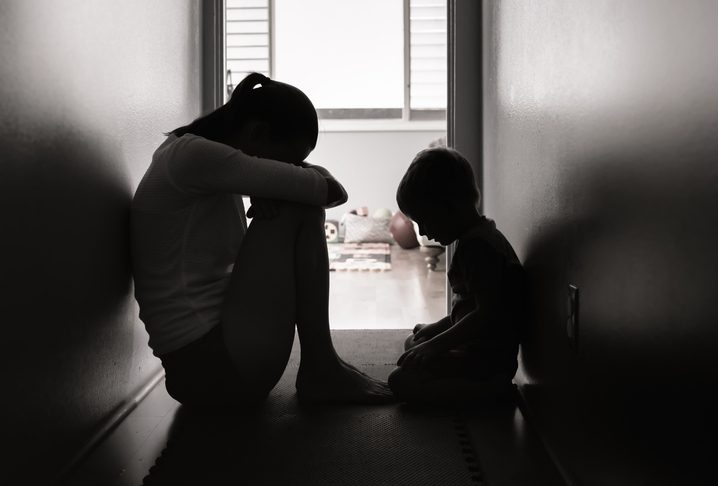We all experience triggers. In the context of this article a trigger is anything that causes a disproportionate or exaggerated reaction to something. For example, if your child won’t pick up their toys and you find that this makes you super upset, more upset than is equivalent to the behavior, then you are likely being triggered. It is normal to feel frustrated as a parent. It is normal to worry and feel a bit overprotective. But when these feelings become exaggerated or feel disproportionate to the event, it’s time to take a moment of reflection.
When a situation triggers you, it most likely comes from a memory or related experience you have had in your past. The trigger is pointing to something deeper, something more complex. The trigger is like bait, it traps you into an old pattern while appearing to be something else. Don’t mistake the trigger for the reason you are having that reaction. The reason will always match the reaction while the trigger is almost always small or seemingly insignificant. Once you’re in the middle of a reaction there is nothing to do but notice what is happening. When you have a chance to get clear again and feel neutral you can explore what really happened. You can look at the specific behaviors of your child that trigger you.
Here are some really basic examples.
- When my child loses their shoes/coat/backpack, right when I am ready to leave the house.
- When my child whines at me or pulls on my clothes
- Talking back or being rude (I hate you! Why do I have to go to bed?)
- Laughing too loud or obnoxiously
- Leaving the door open or slamming doors
- Refusing to eat or wetting the bed.
There are also less negative triggers. Such as:
- My child asking for a hug too often
- Being too careful
- Being sensitive and nervous
- Feeling scared or worried
- Asking you if you are mad at them?
This list could go on and on. There really is no end to what could cause you to be triggered by your child. The behavior can be utterly benign. That is what makes a trigger frustrating. It doesn’t feel valid.
So what can you do if you get regularly triggered by your child?
Here is the process I used to help me manage my own triggers. (Which were many and frequent)
To begin with, don’t be angry or mentally beat yourself up for having the reaction. When you calm down or create some space between the event and your reaction you can contemplate what happened with an open and curious mind. Once you’re in a more contemplative frame of mind here are some questions to begin the process.
Questions to ask:
When have I felt this way before?
How old do I feel during the reaction?
What is my reaction trying to accomplish?
What is the nature of my behavior?
What did I need or want in that moment (that had nothing to do with the event that triggered me)
Here is a story of a trigger response that happened to me.
Whenever my kids went outside to play in a very short time one of them would come back into the house saying “I’m huuuungry!” It was always pretty dramatic too. Instead of feeling amused and responding with kindness and snack I felt extremely irritable, bordering anger. This bothered me a lot. I tried to hide my feelings from the kids so they wouldn’t think I didn’t want to feed them or there was something wrong with expressing your hunger. It seems obvious to me now but at the time I couldn’t see what was happening beyond the trigger. When I asked myself the question, “When have I felt this way before?” a memory from childhood immediately appeared. Instead of dismissing it I looked more closely at it. It was a time when I wasn’t allowed to eat all day, as a punishment. This punishment was used frequently. I noticed that I was about ten years old in the memory. The ten-year-old child in me was angry about feeling hungry and not being allowed or feeling worthy to express it. I realized that my anger came from kids complaining about hunger when they didn’t actually know what hunger felt like. It gave me the feeling of being mocked or put down. It reminded me of the moments in childhood when I felt I wasn’t worthy of food. So my kids entitled reaction to being hungry showed me that I had feelings of shame about being hungry myself, and that I wasn’t worthy of feeding myself. But my kids were innocently showing me that they deserved to eat and were asking for it even when it had only been a few hours. “What was my reaction trying to accomplish?” My reaction was an attempt to protect myself from further self-abuse. “What was the nature of my behavior?” I noticed that I behaved in a petty manner, irritated and childish. The way a ten-year-old might act when no one was paying attention to them. And that is exactly what I was doing, not paying attention to the ten-year-old in me that wanted to deserve to eat, to feel worthy of asking for food whenever they wanted to. Just like my kids were doing. What did I need or want in that moment?” I needed to acknowledge the child in me that was left hungry and ignored. I needed to ask her if she was hungry too. I needed to treat that part of me with the same love and attention that my kids wanted from me in that moment. When I recognized the trigger was really just touching an old wound in me then the kids saying “I’m huuuuungry!” no longer bothered me at all. I could see it for what it was. I was returned to a state of neutrality even before I figured out how to take care of myself.
Each situation is unique. What triggers you is unique to you and your life experience. I am grateful every time I get triggered because I know I am about to discover something in myself that I have not known or understood before. Kids are great at triggering their parents so it was the greatest opportunity of my life, to learn about myself through them. Children can be our greatest teachers if we will learn from them.

